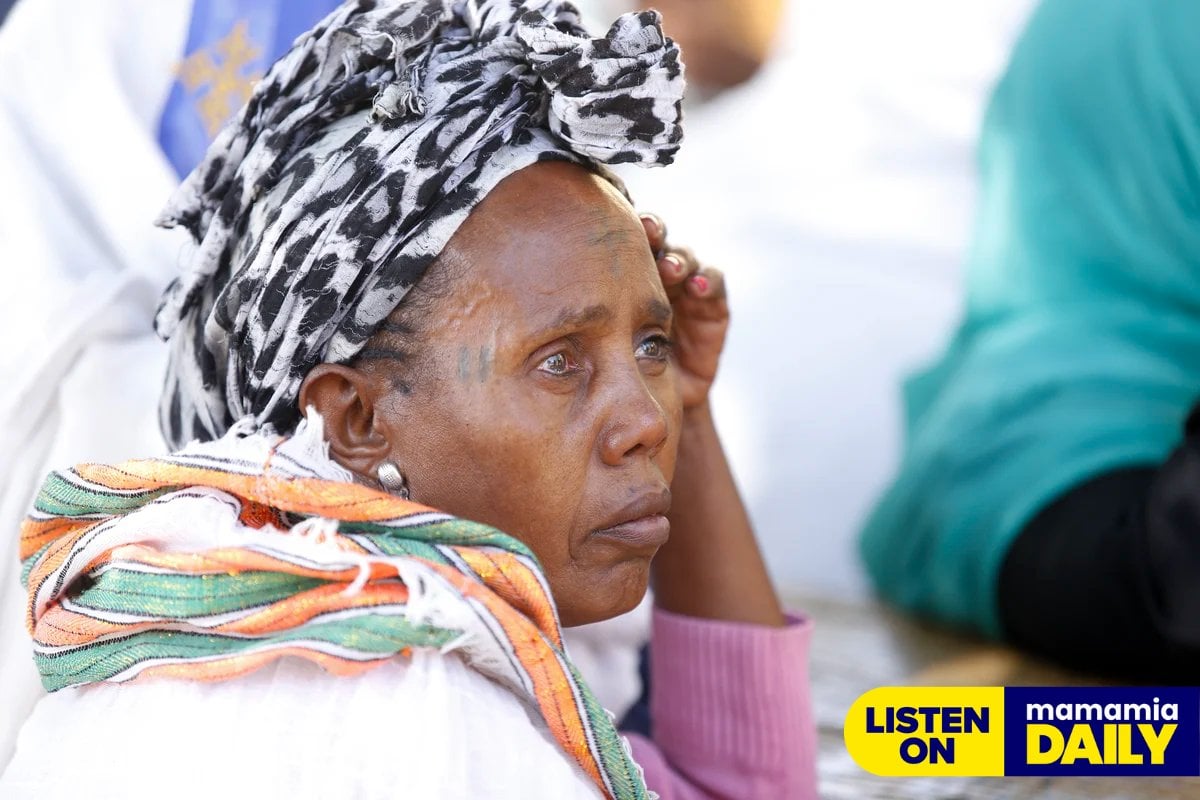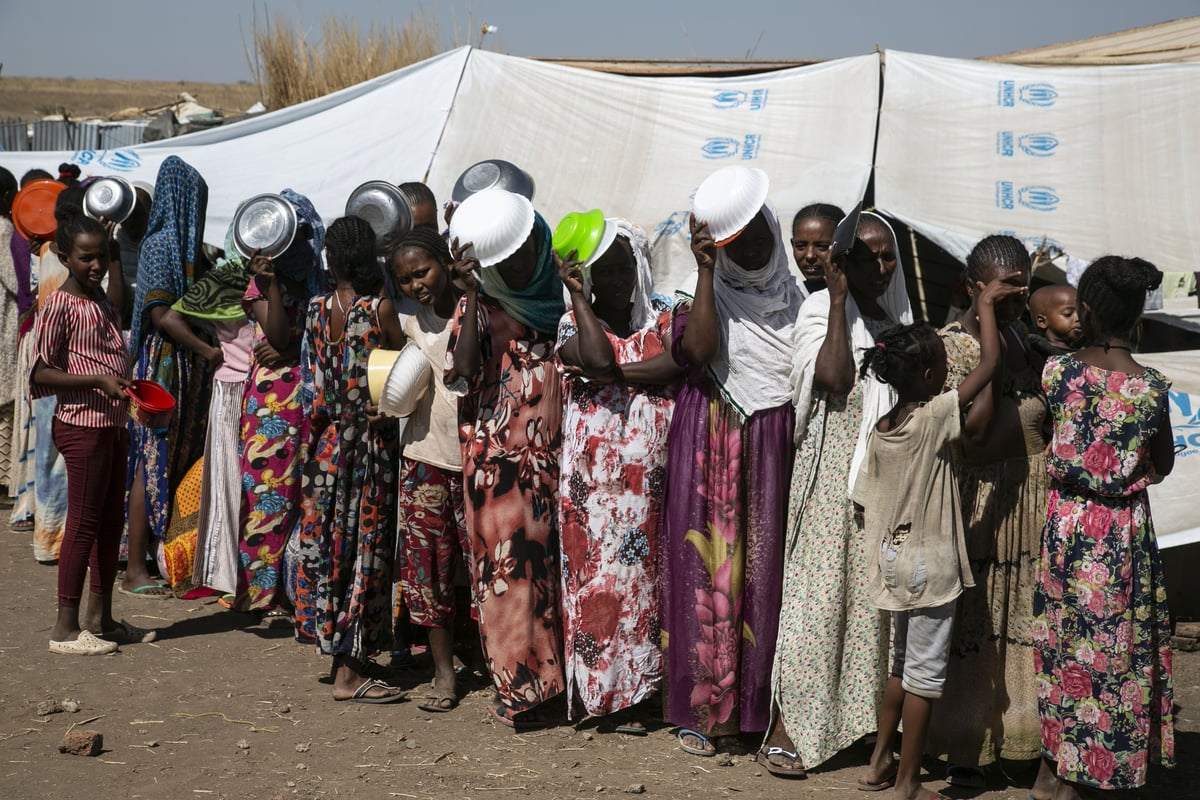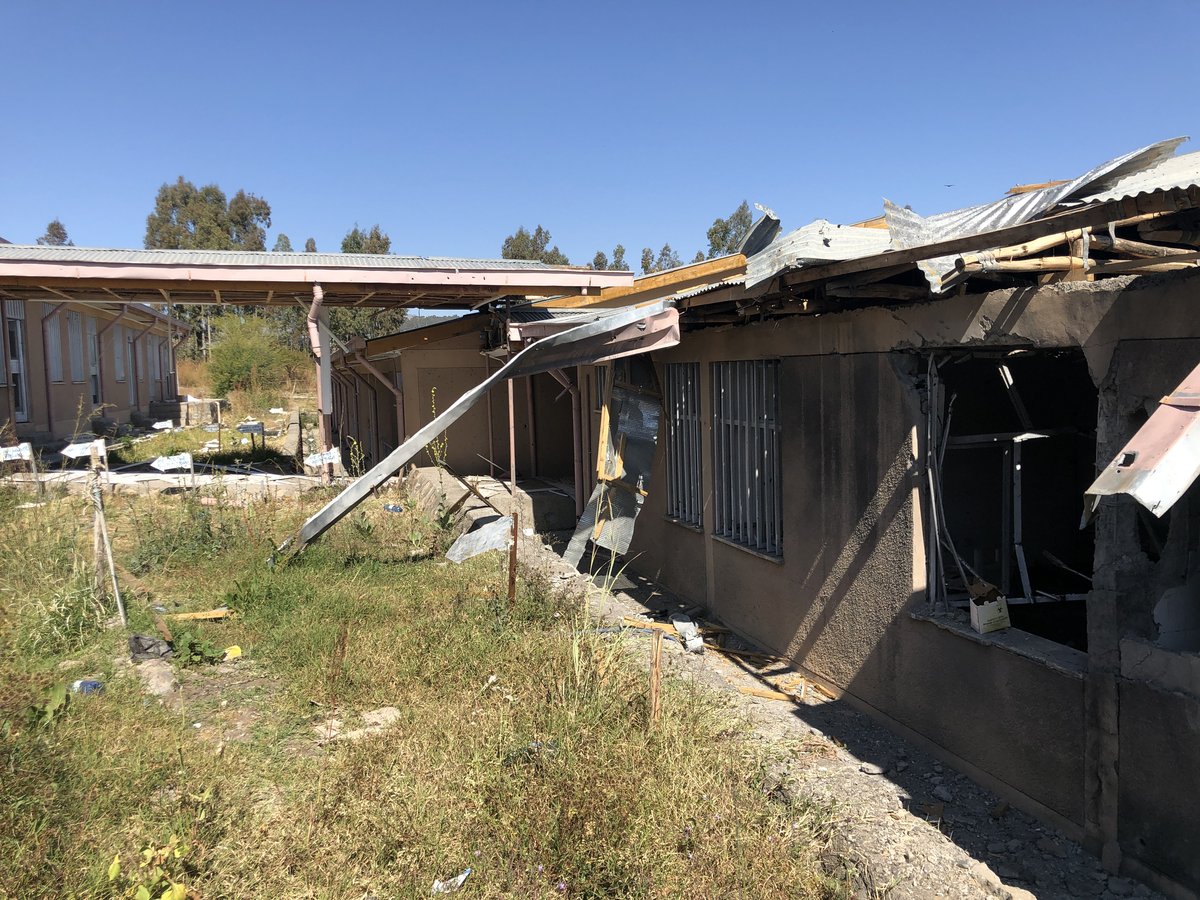
This post deals with sexual assault and may be triggering for some readers.
Listen to this story being read by Brielle Burns, here.
Right now, Ethiopia is currently experiencing the "worst disaster on Earth".
Millions don't have enough food, thousands are being killed, and women and girls are falling victim to sexual violence, as war continues to ravage Ethiopia's Tigray region.
Yet, the conflict - which the World Health Organization's director-general, Tedros Adhanom Ghebreyesus, labelled the "worst humanitarian crisis in the world" - isn't making it to our newsfeeds the way other international crises tend too.
Their faces aren't on our TV screens, their stories aren't filling our social media feeds and their suffering is going widely unnoticed around the world.
"I can tell you that the humanitarian crisis in Tigray is more than Ukraine, without any exaggeration," Ghebreyesus told a virtual media briefing two weeks ago.
"I haven't heard in the last few months, several months now, even a head of state talking about the Tigray condition anywhere."
Tragic to see the active conflict in #Tigray, Ethiopia again, but in reality, the war never stopped. For over 21 months, 6 million people have been under siege. We call for the resumption of essential services and an end to the blockade. The only solution is peace. pic.twitter.com/I2IXxQMG9S
— Tedros Adhanom Ghebreyesus (@DrTedros) August 27, 2022



Top Comments